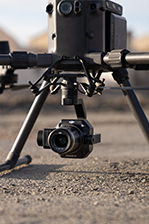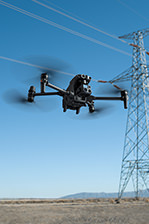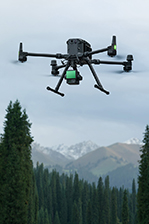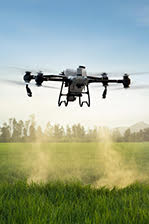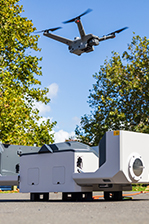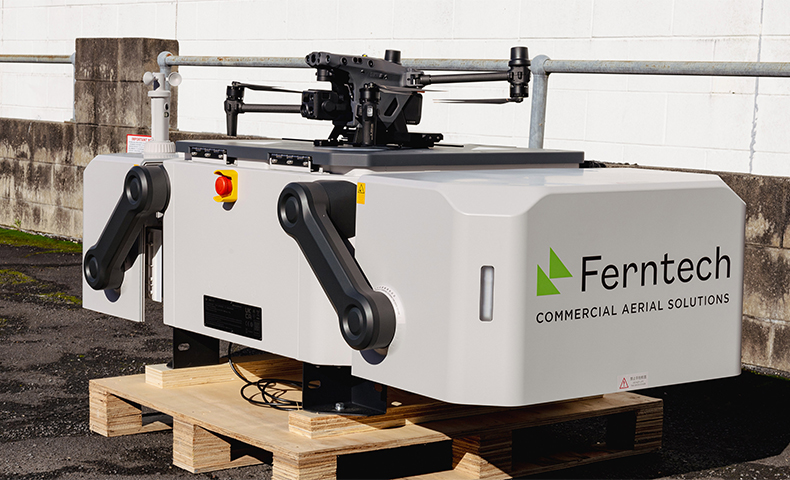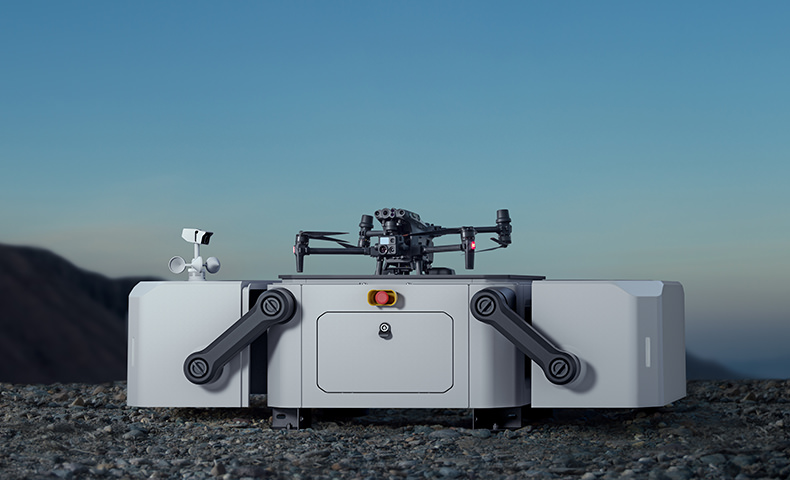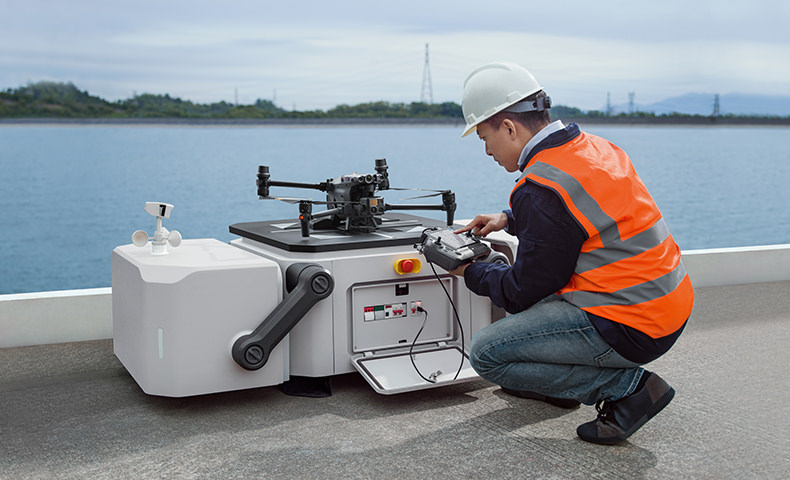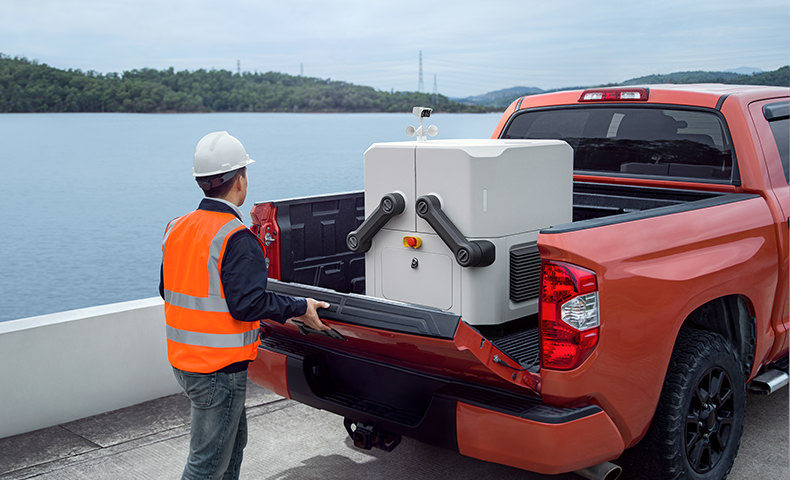DJI Dock
DJI Docks are rugged, reliable, and are built to operate 24/7, day or night, rain or shine.
Features
Through user feedback and research, DJI identified the current issues most organizations face when trying to scale up their RPAS operations. These factors include labor cost of pilot teams and the high intensity of training and skilling required for each pilot. These have the potential to reduce the cost benefits of implementing RPAS equipment into daily operations.
To overcome these challenges, DJI has innovated yet again with the DJI Dock. This essentially now enables remote and autonomous drone deployment in conjunction with Flight Hub 2. The entire process of taking off, landing and charging is now all handled by the DJI Dock, therefore reducing the need for pilots to be on site and to have continuous operations beyond typical working hours.
Key Specifications
▪ Integrated & Easy to Deploy
▪ Cloud Management
▪ 7KM Operation Radius
▪ -35℃ to 50℃ Operating Temperature
▪ Open Edge Computing
▪ Work Smarter With Automation
Safe & Reliable
The DJI Dock has been built with reliability in mind to ensure greater confidence when scaling and operating autonomous RPAS missions.
Day & Night
TEC Air-conditioning enables the DJI Dock to work at temperatures of -35 to 50 degrees celsius. This also means that batteries can be charged from 10-90% in just 25 minutes.
Waterproof
The overall protection of the dock is rated at IP55 with the core components having a rating of IP67. Furthermore, the take off and landing sequence can be done with winds up to 12 m/s.
Lightning Protection
The DJI Dock is equipped with a surge protector which can prevent 40KA induction lighting and has a maximum power input of 1500W.
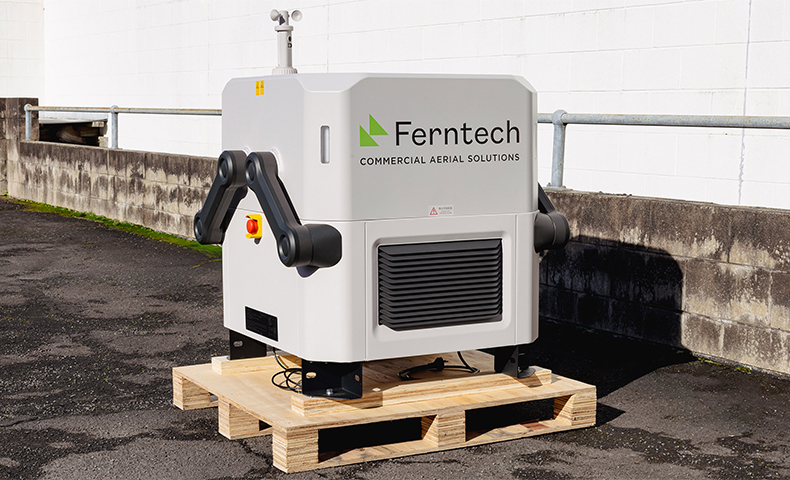
Power-off Protection
The DJI Dock has a built-in backup power supply which can supply power to the dock up to 5 hours after a power failure, ensuring the drone can return safely to the dock.
Complete Cloud Control
Real-Time Awareness
Live stream in high-definition at any time to check on your DJI Dock (security camera) or your drone. This also means users are able to remote debug through FlightHub 2.
Mission Planning
Plan complex flight routes remotely through FlightHub 2. With the OcuSync 3 enterprise transmission system and a flight time of 40 minutes, the M30 can effectively cover up to a 7km radius of the dock.
Flight Plan Management
Edit, manage, and push flight routes to your DJI Docks and keep track of flight progress and results.Whilst planning the routes, there will be a preview of camera FPV on the 2.5D Map.
Media Management and Storage
Review the geo-tagged pictures, videos, maps, and panoramas collected by your drones. Data collected by your drones can be automatically uploaded and stored for later use
One-Stop Operation & Maintenance
Monitor the health and status of your DJI Docks and drones, all remotely from the cloud.
Simplicity is key
The DJI Dock is an all-in-one design that includes a surveillance camera, weather station, built-in transmission antennas, RTK module and an edge computing expansion slot.
Each Dock has a weight of 105 kg with less than 1m^2 of space being needed for operations.
Unfolded Dimensions: L: 1675mm W: 885mm H: 735mm
Folded Dimensions: L: 800mm W: 885mm H:1065mm
Want to learn more about this game-changing technology? Check out our latest Drone in a Box news.
Product Specifications
General
Product Name: DJI Dock
Total Weight: 105 kg (not including aircraft weight)
Dimensions: Dock Cover Opened: 1675×885×735 mm (L×W×H) Dock Cover Closed: 800×885×1065 mm (L×W×H)
Input Voltage: 100-240 VAC, 50/60 Hz
Max Input Power: 1,500 W
Operating Temperature: -35 to 50° C (-31 to 122° F)
Ingress Protection Rating: IP55
Number of Drones Accommodated: 1
Max Allowable Landing Wind Speed: 12 m/s
Max Operating Altitude: 4,000 m
Max Operating Radius: 7,000 m
Receiving Frequency of RTK Base Station Satellite: Simultaneously receive: GPS: L1 C/A, L2 BeiDou2: B1l, B2l, B3l BeiDou3:B1l, B3l GLONASS:L1, L2 Galileo: E1, E5B
Positioning Accuracy of RTK Base Station: Horizontal: 1 cm+1 ppm (RMS) Vertical: 2 cm+1 ppm (RMS)
Charging Performance
Output Voltage: 18 to 26.1 V
Charging Time: 25 minutes Note: This is if the ambient temperature is 25°C (77° F), and the aircraft is charged from 10% to 90%.
Video Transmission
Video Transmission System: O3 Enterprise
Operating Frequency: 2.4000-2.4835 GHz 5.725-5.850 GHz
Antennas: 4 antennas, 2T4R
Transmitter Power (EIRP): 2.4 GHz: <33 dBm (FCC); <20 dBm (CE/SRRC/MIC) 5.8 GHz: <33 dBm (FCC); <14 dBm (CE); <23 dBm (SRRC)
Air Conditioning System
Operating Voltage: 48 VDC
Air Conditioning Type: TEC Air Conditioning
Backup Battery
Battery Capacity: 12 Ah
Output Voltage: 24 V
Battery Type: Lead-acid Battery
Backup Battery Life: > 5 hours
Network Access
Ethernet Access:10/100/1000Mbps Adaptive Ethernet port
Sensor
Wind Speed Sensor: Supported
Rainfall Sensor: Supported
Ambient Temperature Sensor: Supported
Water Immersion Sensor: Supported
In-cabin Temperature Sensor: Supported
In-cabin Humidity Sensor: Supported
Vibration Sensor: Supported
Integrated Security Camera (On Cover)
Resolution: 1920×1080
Field of View (FOV): 180°
Auxiliary Light: Supported, Auxiliary White Light
Lightning Protection
AC Power Port: 40 kA (8/20μs waveform), meets EN/IEC 61643-11 TYPE 2 protection level requirements
Ethernet Port: 1.5 kA (8/20μs waveform), meets EN/IEC 61643-21 CATEGORY C protection level requirements
Supported Software
Applications: DJI Pilot 2 (connects to DJI Dock via DJI RC Plus for configuration and commissioning)
Cloud Platform: DJI FlightHub 2, 3rd Party Platforms through DJI Cloud API
Expansion Capability
Open Protocol: DJI Cloud API
Edge Computing: DJI Dock provides internal power supply, data interface, and space for equipment installation.Edge computing will be supported in Q2, 2023.
In the box
WHY BUY FROM US?
By buying from Ferntech, you'll have the confidence that you are dealing directly with New Zealand's leading drone experts. Our staff are knowledgable drone pilots who offer expert advice, trusted support and superior specialist service. Only through us will you receive a full New Zealand warranty, phone and email support, and access to our certified Repairs Centre with DJI-qualified drone technicians. And we guarantee that we will have the best prices on the market — if not let us know and we will match any price (conditions apply).
Warranty Details
Which aircrafts are compatible with DJI Dock?
DJI Dock is compatible with the M30 series (Dock version).
What models does the M30 series (Dock version) have?
The M30 series (Dock version) includes two versions: the M30 (Dock version) (its gimbal and camera have three sensors: wide-angle camera, zoom camera, laser range finder) and the M30T (Dock version) (its gimbal and camera have four sensors: wide-angle camera, zoom camera, laser range finder, thermal imaging camera).
What's the difference between the M30 series and the M30 series (Dock version)?
The M30 series (Dock version) is equipped with a charging interface and charging management module at the landing gear.
Can the M30 series (Dock version) be controlled by a remote controller (RC)?
Yes. The M30 series (Dock version) can be controlled after linking the DJI RC Plus remote controller (RC) to the aircraft.
What image transmission technology does DJI Dock use?
DJI Dock uses OcuSync 3 (O3) Enterprise image transmission, and supports 4G transmission links.
Note: 4G image transmission is not available in some countries/regions.
What level of surge protection does the DJI Dock have?
AC surge protection capacity is 40kA (8/20μs waveform), and meets EN/IEC 61643-11 TYPE 2 protection levels. RJ45 surge protection capacity is 1.5kA (8/20μs waveform), these meet the CATEGORY C protection level of EN/IEC 61643-21. Surge protection capability depends on the capacity and reliability of grounding. To minimize the risk of surges, please make sure that grounding is done properly during installation.
Does DJI Dock support movement during operations?
Not at the moment, but you can change the Dock location when the drone is not operating, and you can operate again after installing and configuring at the new location.
How does DJI Dock access the network?
Use a standard RJ45 network port, or install a DJI Cellular Module to access the network.
Note: 4G availability varies in different countries and regions.
Note: 4G availability varies in different countries and regions.
For better user experience, it's recommended that the upload and download rate of network bandwidth be no less than 10Mbps.
How to install and configure DJI Dock?
1. Fix DJI Dock on a flat, level surface; 2. Connect the power cables to DJI Dock after it is fixed, connect DJI Dock to the network using a network cable or install DJI Cellular Module; 3. Quickly configure DJI Dock using the DJI RC Plus remote controller (RC).
Can a M30 series (Dock version) drone complete a single operation by taking off/landing at different DJI Docks?
No.
What's the interval between single operations of DJI Dock?
The shortest interval between two flights is 25 minutes. Note: This is if the ambient temperature is 25°C (77°F), and the aircraft battery is charged from 10% to 90%. As the temperature rises, the time required for the battery to cool down will increase and the interval between flights will increase.
Is it necessary to install an additional RTK Base Station for DJI Dock?
No, DJI Dock has a built-in RTK station.
Is it necessary to install an additional weather station for DJI Dock?
No, DJI Dock has a built-in integrated weather station that can monitor wind speed, rainfall and temperature.
Does DJI Dock support the installation of external antennas?
Supported.
Does DJI Dock support SDK development?
Supported. DJI Dock fully supports application protocols, such as plan distribution, media transmission, real-time reporting of device information, and remote debugging, via an API interface, to meet users' development demands for customized cloud management systems. Supports access to a variety of network environments for easy privatized deployment.
There's currently no reviews for this product, be the first to write one.









